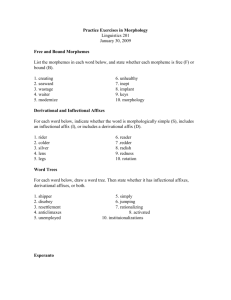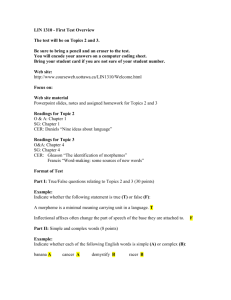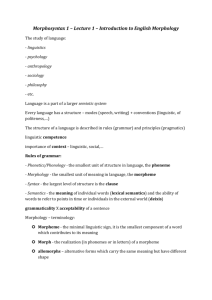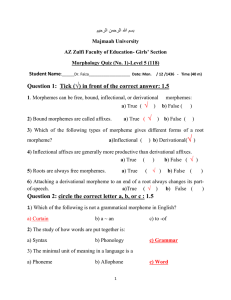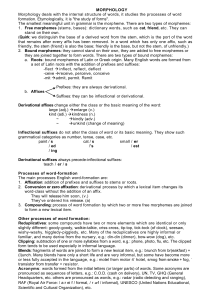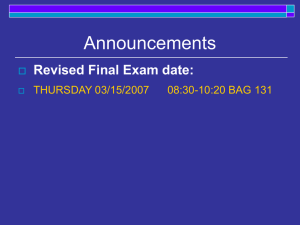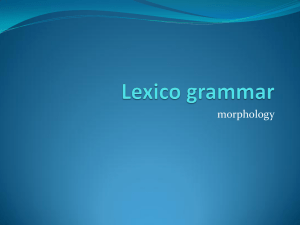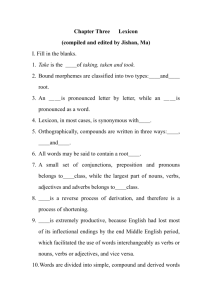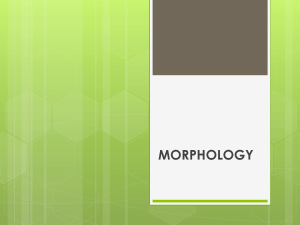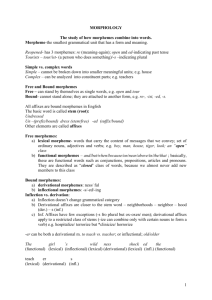Morphology Practice Exercises: Linguistics
advertisement
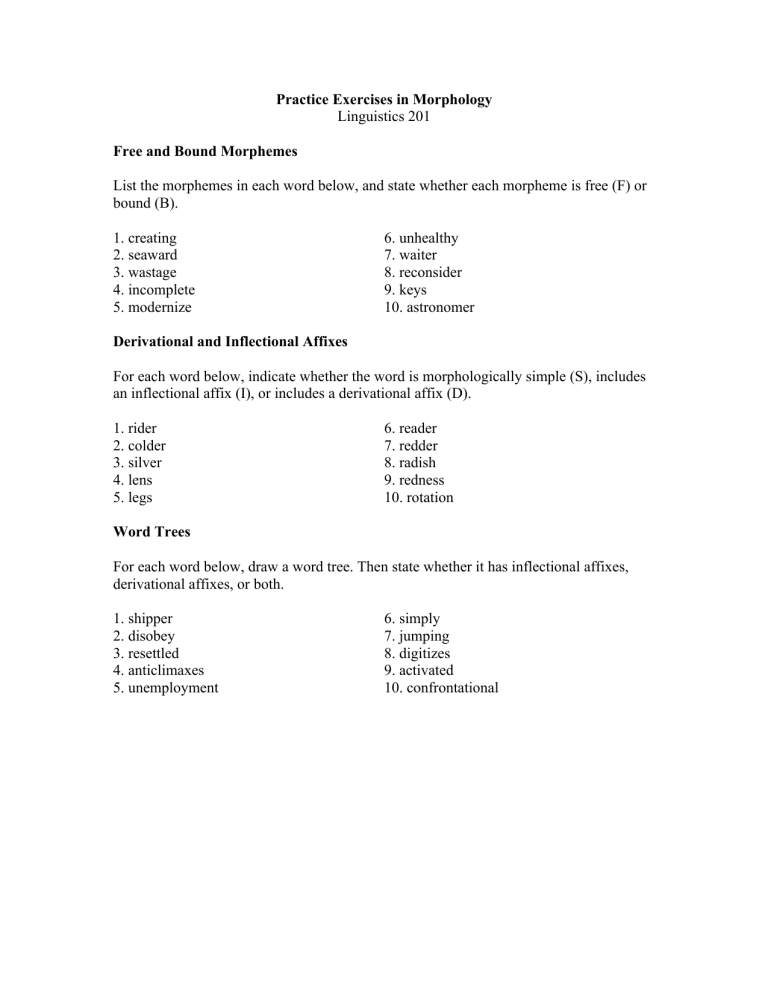
Practice Exercises in Morphology Linguistics 201 Free and Bound Morphemes List the morphemes in each word below, and state whether each morpheme is free (F) or bound (B). 1. creating 2. seaward 3. wastage 4. incomplete 5. modernize 6. unhealthy 7. waiter 8. reconsider 9. keys 10. astronomer Derivational and Inflectional Affixes For each word below, indicate whether the word is morphologically simple (S), includes an inflectional affix (I), or includes a derivational affix (D). 1. rider 2. colder 3. silver 4. lens 5. legs 6. reader 7. redder 8. radish 9. redness 10. rotation Word Trees For each word below, draw a word tree. Then state whether it has inflectional affixes, derivational affixes, or both. 1. shipper 2. disobey 3. resettled 4. anticlimaxes 5. unemployment 6. simply 7. jumping 8. digitizes 9. activated 10. confrontational Esperanto Esperanto is an artificial language that was invented by Ludwig Zamenhof in 1887. It was designed to be easy to learn and is based largely on the languages of western Europe. It is now primarily spoken in France, although it may also be found in eastern Asia, South America and eastern Europe. There are now between 200-2,000 native speakers and about 2,000,000 people worldwide speak it as a second language. Examine the following data from Esperanto and then answer the questions below: 1. bono 2. instrua 3. malfacila 4. patrino 5. instruisto 6. porti 7. facila 8. patro 9. portisto 10. instrui ‘goodness’ ‘instructive’ ‘difficult’ ‘mother’ ‘teacher’ ‘to carry’ ‘easy’ ‘father’ ‘porter’ ‘to instruct’ 11. portistino ‘female porter’ 12. pura ‘pure’ 13. malbone ‘badly’ 14. facile ‘easily’ 15. bona ‘good’ 16. malgranda ‘small’ 17. bone ‘well’ 18. facilo ‘easiness’ 19. granda ‘big’ 20. instruo ‘instruction’ A. What are the morphemes that correspond to the following lexical categories and concepts? i. Nouns iv. Adverbs ii. Verbs v. Feminine iii. Adjectives vi. The opposite (not…) B. Translate the following English words and phrases into Esperanto. i. “purity” ii. “bad” iii. “female teacher”


